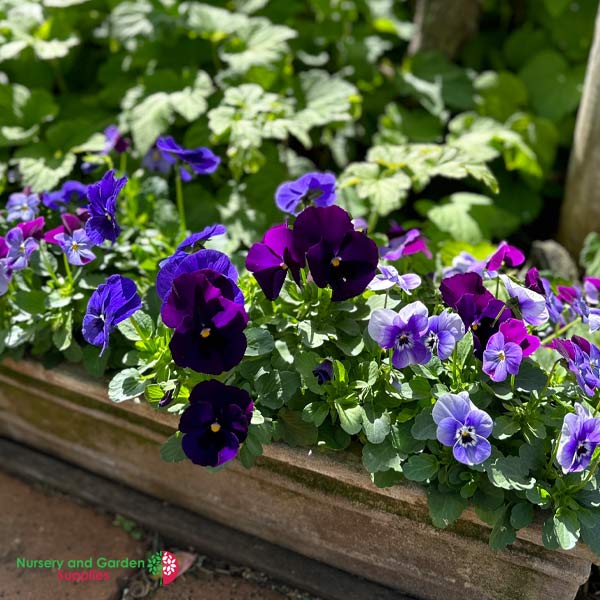Who says Australia is boring! In recent times, we have have had floods, cyclones, mini tornados, snow, frost and heat waves across many parts of the country.
Unfortunately the effects of weather events like flooding and wind are outside our control. What we can control is how resilient our plants are to the stress effects of cold and heat. Plant health is vital when we are asking them to withstand these weather extremes. Making sure your plants are not suffering stress already caused by pests, mould, disease, dehydration, overwatering, and other stressful conditions will also be vital in surviving extreme weather. Sick plants already have greatly reduced stress coping abilities.To some cases like fruit trees, babana covers are being use to protect branches and fruits from wind damage.

One important way we can prepare our gardens in hanging baskets or potted plants to be more resilient to the stress of Heat and Cold weather is the application of Seaweed extracts – especially KELP.
Kelp seaweed extracts are known to have various beneficial effects on plants, including enhancing their resilience to heat and cold stress. This is mostly due to the unique composition of kelp, which contains various hormones, minerals, and other bioactive compounds. Here’s how intake of these compounds can contribute to increased resilience:
- Plant Hormones: Kelp extracts contain natural plant hormones. These hormones can stimulate plant growth and improve overall health, making plants more resilient to stress conditions.
- Minerals and Trace Elements: Kelp is rich in minerals like potassium, magnesium, sulphur, and trace elements. These nutrients are essential for plant health and can improve a plant’s ability to withstand environmental stress.
- Antioxidants: Antioxidants can protect plants against oxidative stress. This is particularly relevant during temperature extremes, where increased metabolic activity can generate harmful free radicals.
- Improved Water Retention: Some compounds in kelp can enhance the water retention capacity of plants, which is crucial for surviving both heat and cold stress. In hot conditions, better water retention helps prevent dehydration, while in cold conditions, it can help to prevent frost damage.
- Stress Tolerance Hormones: Many Kelp extracts also contain or stimulate the production of stress-related hormones like abscisic acid, which plays a crucial role in a plant’s response to stress conditions.


- Enhanced Root Development: Kelp extracts can stimulate root growth, leading to a more extensive root system. This can improve water and nutrient uptake, further bolstering the plant’s resilience to environmental stresses.
- Biostimulant Properties: Kelp extracts act as biostimulants, enhancing the plant’s metabolic processes. This can lead to improved growth and development, which inherently increases resilience to stress.
Transplant shock can also a plant killer. Learn more about your plant variety and the effect of transplanting on your plant. Helping your plant become more resilient to Transplant shock involves the same preparation processes of boosting the above mentioned compounds.
By providing these nutrients and bioactive compounds, you can significantly enhance a plant’s ability to withstand and recover from temperature extremes. However, the effectiveness can vary depending on the plant species, the specific conditions, and the concentration and method of application of the kelp extract.
SEASOL Australia & Nursery and Garden Supplies (located in Queensland, Australia) have just released a 1 litre Seasol TRILOGY 631 designed to help make your gardens and potted plants more resilient to the stress of Heat and Cold weather. Click here for more information on Trilogy 631.
Some extra reading on making you gardens more resilient can be done here: Seasol – your-garden-this-month/february-2021/








